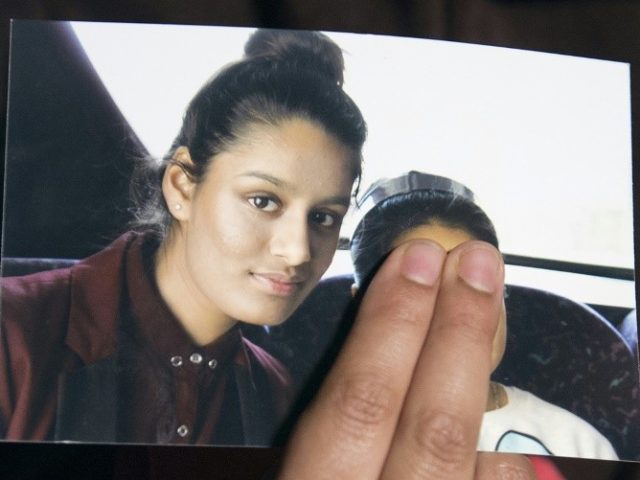Britons who travel abroad to terrorist hotspots could face up to 10 years in prison when they return, according to new laws introduced today.
The new powers, introduced by Home Secretary Sajid Javid in the Counter-Terrorism and Border Security Act 2019 mean that remaining in or travelling to so-called prescribed areas will be a specific criminal offence carrying a potential sentence of 10 years.
The Home Secretary will have the power to designate certain areas as off-limits if he feels that there is sufficient cause to do so and a threat of a significant nature, making it a criminal offence to travel to any such location. Under there will also be exceptions made for necessary travel such as for journalists or those wishing to attend a funeral of a relative.
The measures are designed to help prosecute British citizens from travelling to fight for overseas terror organisations such as Islamic State, but due to the nature of crimes being committed in law-free foreign areas, are very difficult to collect evidence of for prosecution. .
Over 900 people are thought to have travelled from Britain to fight for the Islamic State in Syria, with 20 per cent reportedly killed abroad while 40 per cent have returned to the UK. Of those returning, just one in ten have been prosecuted, reports The Guardian.
The law is not to be applied retroactively, so cannot be used to convict people who have travelled to fight abroad in the past. This means because it has taken so long for the government to enact the law, the vast majority of Brits who ever travelled to the Islamic State will not be prosecuted under it.
Among other measures contained in the bill are restrictions on obtaining or viewing terrorist material online and tougher sentences for existing criminal activity. The law also introduces new stop and search powers for border guards who will now be allowed to search a person at their discretion in order to combat “hostile state” activity.
This measure has drawn criticism from journalists and free speech campaigners, however, who claim that it will infringe on freedom of the press.
The free speech campaign group ‘Index on Censorship’ and the ‘Reporters Without Borders’ said in a joint statement last year that the stop and search measures were “vaguely defined” and so could be used to impinge, journalists, as they would force reporters to answer questions to border guards under threat of detention. This may include revealing confidential sources.
The introduction of the new laws come in the wake of several high profile instances of Islamic State supporters and fighters looking to return home, causing much debate about what should be done with them. The most famous of these in the UK is that of Shamima Begum, the so-called ‘IS-Bride’.
Begum travelled to Syria in 2015 as a 15-year-old and married a jihadi fighter. She had three children with him, all of whom have since died, the most recent only a few weeks ago. Begum is currently residing in a Syrian refugee camp and has had her British citizenship revoked by the Home Secretary.
In an interview she described seeing a severed head in a bin during her time with the Islamic State, saying that it “didn’t faze” her. In March two further ‘IS-brides’ had their citizenship revoked.

COMMENTS
Please let us know if you're having issues with commenting.